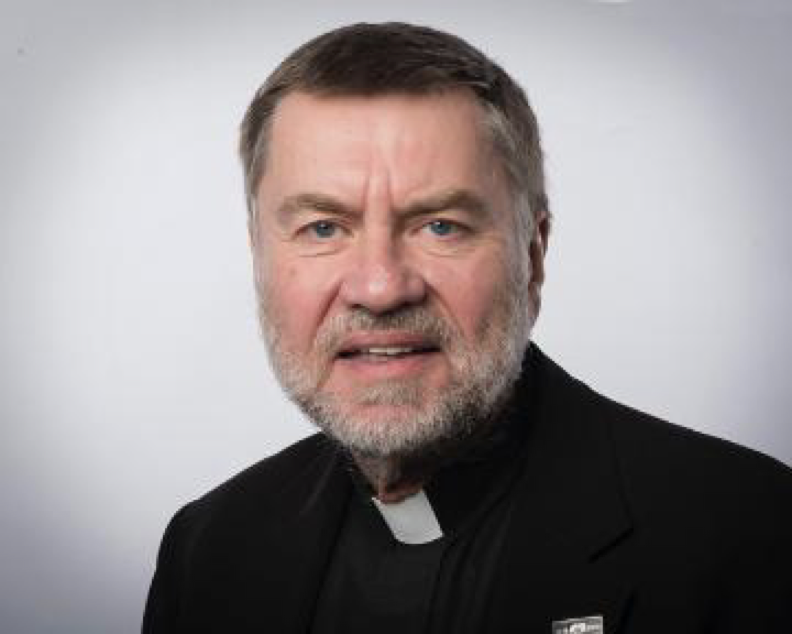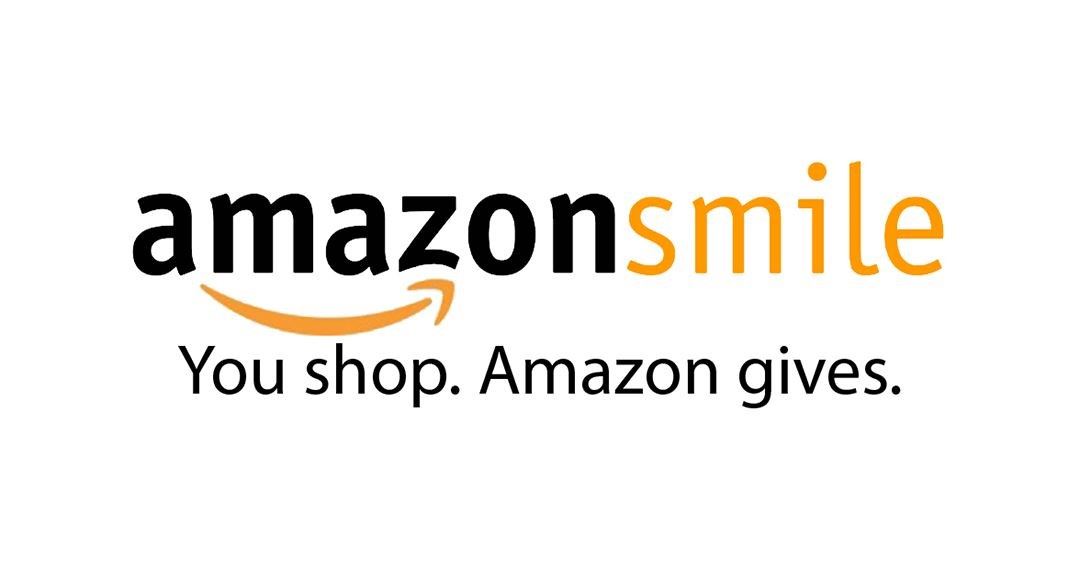The Official Newsletter for the Media Ecology Association |
|
|
|
|
|
|
The Twenty-Third Annual Convention of the Media Ecology Association: Celebration
Pontifical Catholic University of Rio de Janeiro, Brazil
July 7–10, 2022
“Dewey opens an important chapter in Experience and Nature with the seemingly preposterous claim that ‘of all things communication is the most wonderful.’ …The object, then, of recasting our studies of communication in term of a ritual model is not only to more firmly grasp the essence of this ‘wonderful’ process, but to give us a way in which to rebuild a model of and for communication of some restorative value in reshaping our common culture.” (James W. Carey, 1989)
The theme of the 2022 convention is Celebration. A long period of turmoil has seen social division, self-isolation and perpetual stress become our daily norm. Through the various conflicts and trials, it has been the strength of our relationships and associations that have sustained us. Resilience is more than an individual trait. It is the product of self-care and mutual concern. The so-called “good life” includes our ability to individually and collectively endure great challenges, while reminding ourselves that joy must not be inhibited by the obstacles in our way. We continue to celebrate our accomplishments and our associations as an affirmative enterprise in making and remaking this human condition. The annual Media Ecology Association Convention helps our community mark these important milestones, celebrating our hard work and our commitment to one another. This is true in any year, but in particular in these times it is vital to raise up this sensibility and center it as a cause in our 2022 proceedings.
General topics of interest related to the convention theme (but not limited to):
- Community Life
- Rituals of Celebration and Affirmation
- Technology as a Connecting Agent
- Art and the Expression of Joy
- Education and the Learning of Resilience
- Surviving the Maelstrom…and Thriving
- Positive Psychology and Media Ecology
- Science and Sanity: General Semantics
Featured Speakers
Tiffany Shlain
Neil Postman Award
Tiffany Shlain is an Emmy-nominated filmmaker, speaker, bestselling author, and founder of The Webby Awards. She has received over 80 awards and distinctions for her films and work, including selection for the Albert Einstein Foundation’s initiative Genius: 100 Visions for the Future, being on NPR’s list of Best Commencement Speeches, and being named by Newsweek as “one of the women shaping the 21st century.” She is the recipient for the 2021 Creating The Future Award from the Maui Film Festival. The Museum of Modern Art in New York premiered her live, one-woman “Spoken Cinema” show Dear Human right before the pandemic.

Tiffany’s book 24/6: The Power of Unplugging One Day a Week was published by Simon & Schuster’s Gallery Books and has been featured in the New York Times, Harvard Business Review, and the Washington Post. 24/6 received the MEA’s Marshall McLuhan Award for Outstanding Book in the Field of Media Ecology in 2020, a starred review from Publisher’s Weekly, and was included on bestseller lists including Best Business Books, Top Tech Books, the Library Journal national bestseller list, and Best High Tech Audio Books. 24/6 explores her family’s decade-long, transformative practice of turning off screens one day each week for what they call their Technology Shabbats; the past, present and future of technology; and the effects our 24/7 world has on individuals, our relationships, and our society.
To learn more, visit https://www.tiffanyshlain.com.
★
Paul A. Soukup, SJ
Walter J. Ong Award
Paul A. Soukup, S.J., has explored the connections between communication and theology since 1982. His publications include Communication and Theology (1983); Christian Communication: A Bibliographical Survey (1989), Media, Culture, and Catholicism (1996), Mass Media and the Moral Imagination with Philip J. Rossi (1994), and Fidelity and Translation: Communicating the Bible in New Media with Robert Hodgson (1999). This latter publication grows out of his work on the American Bible Society’s New Media Bible. In addition, he and Thomas J. Farrell have edited four volumes of the collected works of Walter J. Ong, S.J., Faith and Contexts (1992–1999). These volumes have led him to examine more closely how orality-literacy studies can contribute to an understanding of theological expression. Most recently, he has published a book of Biblical meditations on communication, Out of Eden: 7 Ways God Restores Blocked Communication (2006) and edited a collection of essays applying Ong’s thought, Of Ong & Media Ecology: Essays in Communication, Composition, and Literary Studies (2012).

A graduate of the University of Texas at Austin (Ph.D., 1985), Soukup holds the Pedro Arrupe, S.J., university endowed professorship and teaches in the Communication Department at Santa Clara University. Fr. Soukup has served on the Boards of Trustees of the American Bible Society and Loyola University of New Orleans; on the Communication Committee of the U.S. Catholic Conference; and holds membership in the Religious Communication Association, the National Communication Association, and the Media Ecology Association.
Reduced registration rates for our 2022 convention are available until May 31, 2022:
- MEA regular member: $100
- Student member: $40
- Non-member: $225
- Non-member student: $50
|
|
|
Please note: The convention page currently has preliminary travel information. More will be added so please stay tuned for updates. |
|
|
|
|
Are you interested in media ecology and have some questions about it? Are you working on a study related to media ecology and searching for advice? Are you an instructor looking for a media ecology expert to invite as a virtual guest speaker to one of your classes?
Get in touch with us! We are happy to schedule a “virtual coffee” appointment with you. Simply fill out the form below to set up a short call or virtual meeting with a scholar from the MEA.
The format is open to all. We especially encourage students and early-career scholars interested in media ecology to get in touch with us. Do you have a background in media ecology and would like to volunteer for virtual coffee meetings with those looking to learn more about it? Send an email to Julia M. Hildebrand.
Arrange a Virtual Coffee appointment on our website. |
|
|
Back Issues of EME Pedagogy Sections Include Online Teaching
Access all back issues of Explorations in Media Ecology in the Members Area on the MEA website. These back issues include pedagogy sections that contain information about teaching, including teaching online. |
|
|
|
|
Book Reviewers Wanted!
Have you read a good book with connections to Media Ecology? Please consider submitting a review for publication in Explorations in Media Ecology. Are you reading a new book for use in an upcoming class? Please consider submitting a review and helping out other scholars looking for new texts. Do you just like writing book reviews? Consider writing one for EME!! :) Contact jbogaczyk@gmail.com for more information and to get a format template. Reviews should be between 1000 and 2000 words. |
|
|
|
|
|
|
MEA @ NCA 2022
NCA 108th Annual Convention
“Honoring PLACE: People, Liberation, Advocacy, Community, and Environment”
November 17-20, 2022
New Orleans, Louisiana
|
|
|
|
|
|
|
|
|
MEA @ ICA 2022
The 72nd Annual ICA Conference theme One World, One Network‽ invites reimagining communication scholarship on globalization and networks. The use of the interrobang glyph - a superposition of the exclamation and question punctuation marks – seeks to simultaneously celebrate and problematize the “one-ness” in the theme. Click here to read the latest news on the ICA 2022 conference.
At this year’s 72nd annual ICA conference, to be held in Paris, France on May 26–30, 2022 (theme: “One World, One Network‽”), the MEA is sponsoring the following panel:
Title: “Networking Our Way Toward a World of Sanity”
Chair: Thom Gencarelli, Manhattan College
- “All Things to All People: The Overlapping Boundaries of the Networked Self”
Margaret Cassidy, Adelphi University
In an age characterized by extensive use of social media for interaction among friends, family, coworkers, and total strangers, people are experiencing a complicated degree of overlapping and intertwining relationships and roles. The movement of many life activities online during the COVID-19 pandemic exacerbated this condition, as our homes became all places in one – home, office, fitness center, doctor’s office, therapist’s couch, house of worship – and it became difficult or impossible to keep those roles and those audiences separate from one another. The core thinkers and theories of media ecology provide an ideal lens through which to examine the challenges posed by the hyper-networked pandemic era. This paper will draw on such media ecology scholars as Erving Goffman, George Herbert Mead, Edward Hall, and Sherry Turkle to explore the challenges of managing overlapping identities.
- “Facebook, the Metaverse, and the Internet as Central Nervous System”
Thom Gencarelli, Manhattan College
On the day I sit to write this abstract, Facebook has just officially announced their plan to rebrand and rename the company – as, in the words of Mark Zuckerberg, “over the next several years, we will effectively transition from people seeing us as primarily being a social media company to being a metaverse company.” The obvious question from this becomes: “What is this thing Zuckerberg calls the metaverse?” Is it simply Facebook’s latest attempt to maintain its power and wealth as one of the most prominent companies on our venture/adventure toward Web 3.0? Is it a simply a ploy to regain control of the company’s narrative and the narrative about the company after so much scandal? Is it the vision of a majority and controller shareholder who is himself asocial? Or is it, in virtual terms, something real?
At a conference that asks us to consider the idea and possibility of one world, one network, this paper addresses Facebook/Zuckerberg’s metaverse as one possibility for such a network – with all of the dystopian consequence it might entail.
- “Between a Korzybskian Non-Allness and a McLuhan Allatonceness: The Rebirth of Irony in a Post-Covid Epoch”
Adeena Karasick, Pratt Institute
On July 26, 2021, The New York Times declared that due to the functioning of our media and how this affects our socio-political aesthetics – (and I would add, coupled with recent historic events, Black Lives Matter, #MeToo, Trumpism and Covid) – riddled in contradiction and chaos, we are now craving a sense of empathy, connectedness, catharsis, and as such have entered into a new socio-aesthetic epoch marked by the [death] of irony. It alleged that because of the Internet; and its inability to adequately communicate tone, Twitter, Facebook, Snapchat, Insta, urge an us vs. them attitude; a passionate uplifting OR vehement condemnation. The article further asserts that because media (particularly TV and film) are no longer being predominantly created by white male heroes (who historically were in power for a very long time and had the luxury of exploring nuanced sides of expression), there is no more room for irony, but instead a blanket celebration of all who have been disenfranchised, silenced or misrepresented. And as such, irony has taken a back seat, and contemporary art is marked by sincerity, sentimentality, affect.
If irony functions through a sense of detachment, and empathy proffers a sense of connection, these modes of communication seem oppositional, dichotomous and irreconcilable. However, read through a Korzybskian model of “a consciousness of abstraction,” and with reference to Plato, Aristotle, Freud, Hobbes, Kant, Kierkegaard, and McLuhan, I would like to posit that through a study of the way irony functions in an “allatonceness” of both connection and disconnection, empathy and detachment, it can offer a discursive model needed for this present moment. Not a non-ironic, over-sentimentalized discourse which glosses over darkness, tragedy, and discomfort but rather one that is both distancing, subversive and full of affect, and thereby underscores how modes of complex communicative strategies problematize the foundations of systemic infrastructures, crucial for transformation and change.
- “One World, One Global Village”
María Teresa Nicolás, Universidad Panamericana, Campus México
Laura Trujillo Liñán, Universidad Panamericana, Campus México
Marshall McLuhan claimed that media and technology had a structural impact on society. This is due to the fact that as they are expressions of the human being; they are essentially new types of language through which humans extends their senses. In this paper we will present the case of Coursera, which, through its virtual courses, has tried to standardize and unify education throughout the world, thus achieving, despite isolation, the unity of one world, one global village.
- “Timespace and the Study of Media Environments”
Lance Strate, Fordham University
Media ecology is concerned with three overarching types of environments: the symbolic, the technological, and the biophysical. The concepts of space and time are in large part products of culture, which is to say concepts emerging out of our symbolic and technological environments. As our symbolic and technological environments differ, from one place and era to another, so do our concepts of space and time. Beyond these differences, however, Einsteinian physics posits the existence of the unified field of spacetime as the ultimate environment of the universe. This view privileges the concept of space, however, to the extent that it essentially eliminates the concept of time, reducing it to a form, or dimension, of space. This can be understood as using space as a metaphor for time, a conceptualization that has its origins in various forms of timekeeping dating back to antiquity. An alternative view would be to reverse the relationship between space and time, and substitute the idea of timespace, and space as a function of time. Support for this alternate conceptualization can be found in our contemporary media environment, specifically in the concepts of cyberspace and cybertime.
|
|
|
|
|
|
|
IGS NEWS
The New York Society for General Semantics, in partnership with the Institute of General Semantics, is proud to announce the second edition of our Non-Aristotelian Reading Circle. All are welcome to join! Are you new to general semantics? Are you a seasoned scholar, practitioner, or intellectually curious individual? Our meetings will be held virtually, via Zoom, on Tuesday nights from 7pm until 9pm EST. We encourage those with experience in general semantics thinking to bring along friends and colleagues new to the discipline in order to expand our reach.
The Non-Aristotelian Reading Circle is proud to debut with a classic from the library of general semantics works. Beginning March 22, 2022, registered participants will join members of the New York Society for General Semantics and the Institute of General Semantics for a reading of Wendell Johnson’s “People in Quandaries: The Semantics of Personal Adjustment.” The reading circle will conduct a total of six discussions covering the book’s 18 chapters. Upcoming discussions:
- May 17th - Part IV: The Making of a Difference (XIV, XV)
- May 31st - Part V: Applications
|
|
|
MEA Membership Renewal Reminder
It is not too late to renew your membership by paying your dues. Please log into the website at www.media-ecology.org, and then log in using your email ID and password and follow the directions. You may pay online via PayPal or pay by check made payable to the Media Ecology Association and mailed to our treasurer, Paul Soukup, S.J., at the Communication Department; Santa Clara University; 500 El Camino Real; Santa Clara, CA 95053 USA. For those outside the U.S., you may also pay by Western Union money order sent to psoukup@scu.edu. If you wish to change your membership, please drop Paul Soukup a note.
*Please note: The Media Ecology Association Executive Board decided that the newsletter will be available online to all interested readers. However, only members can be featured in the newsletter itself. If you are a MEA member, please fill out this form (include a call to submit material+ link). |
|
|
Donate to MEA through AmazonSmile

When you order through AmazonSmile, the AmazonSmile Foundation will donate 0.5% of the purchase price of eligible products to the charitable organization of your choice."
To use it, go to smile.amazon.com and sign in as you usually do. Directly under the search bar, you will find a pull-down for supported charities. Search for and select Media Ecology Association. |
|
|
This message was sent to you by Media Ecology Association.
If you no longer wish to receive these emails, you can unsubscribe at any time
{Organization_URL} |
|
|
|